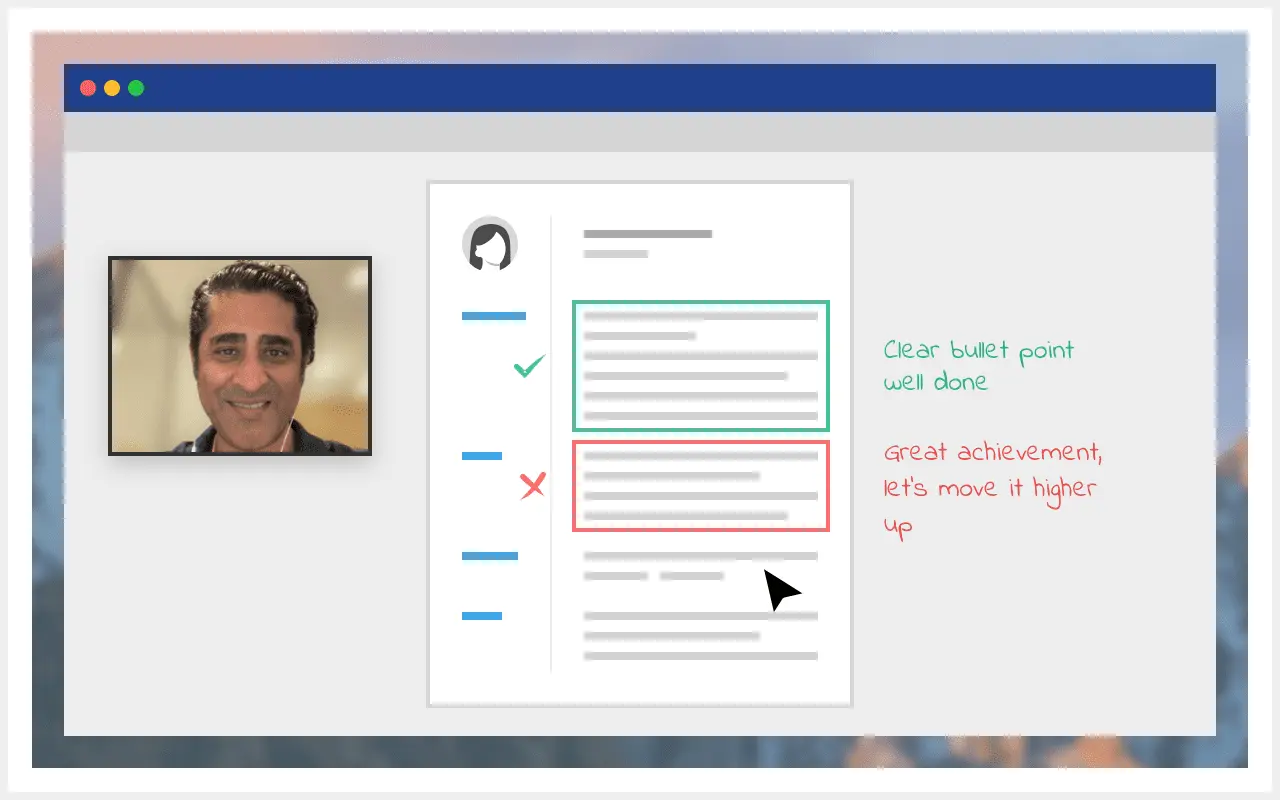McKinsey careers are some of the most sought after jobs in the world. On top of being THE most prestigious consulting firm, McKinsey offers its recruits impressive salaries and exceptional exit opportunities. But unfortunately, there is a lot of misunderstanding about the different types of jobs that McKinsey actually offers.
In this post, we're going to provide an overview of each of McKinsey's 8 job types, including examples, key qualifications, and links to the corresponding McKinsey job boards. Then, we'll turn our attention to the career progression in consulting, by summarising the 6 levels that McKinsey consultants go through, from Business Analyst to Partner.
The last section of this guide will provide information and resources to help you land your dream job at McKinsey. Check-out the links below, to jump to the section you're most interested in.
Click here to practise 1-on-1 with McKinsey ex-interviewers
1. McKinsey's 8 job types ↑
In the following section, we'll cover the 8 different types of jobs you'll find at McKinsey. It's important to distinguish this from the McKinsey career path, which describes the advancement steps in the company (from Analyst to Partner). If you're most interested in learning about the career path, then skip to section 2. It's also important to note that this guide is focused on full-time positions. If you want insight into McKinsey's internship positions check-out this article.
The 8 points below will describe the type of work that is done by professionals in each type of McKinsey job. This should help you evaluate where your interests and experience fit the best. Another great way to identify your best job-fit, is the McKinsey job quiz. The downside of the quiz is that it just shows you one primary type of job (and 1-2 alternatives). In other words, you don't get to see a full picture of all the job types available at McKinsey. That's where the sections below are helpful.
Before going into each individual job type, here's an overview which shows the relative number of opportunities available in each job type. This data is based on the number of open positions available on McKinsey's website, at the time of writing this article.

1.1 Consulting (31% of open positions)
McKinsey is best known for its expertise in strategy consulting. If that's what you're interested in, then you'll want to pursue one of the firm's consulting roles. In a McKinsey Consulting role, you'll typically start as a generalist, with additional opportunities to specialise as you advance in your career.
McKinsey Consulting roles are more focused on establishing the business strategy for clients, and less focused on executing it. As a strategy consultant, you'll be involved in gathering information, analysing key data points, developing hypotheses, and delivering final recommendations to client leaders. Once the strategy is established, it is handed over to the client's people. Or, the strategy might be given to a McKinsey Implementation team for execution.
For example, a drugstore firm like CVS might hire McKinsey to provide recommendations related to opening new stores in Germany. McKinsey would send a Consulting team, who would first gather information on the current climate of the German pharmacy and convenience store markets. Then, they would conduct an analysis, and test hypotheses to evaluate different potential strategies. Finally, the McKinsey Consulting team would provide a strategy recommendation, including the next steps the business should take.
Key qualifications:
- Undergraduate degree and strong academic credentials from a reputable institution
- An MBA or graduate degree is preferred for Associate positions
- Exceptional problem solving and quantitative skills, typically tested through case interviews
- Ability to clearly communicate complex ideas to people from different levels of an organisation
- Excellent leadership skills, supported by a track record of past successes
Note: these qualifications will vary based on the specific role and office you apply to. The qualifications above reflect some of the typical qualifications McKinsey looks for in their Consulting applicants, which we found on the McKinsey job board.
McKinsey's Consulting job board
1.2 Analytics (12%)
In an Analytics role at McKinsey, your goal will be to use data and analysis to create helpful business insights. This broad objective can involve a variety of different tasks, and in all cases, strong quantitative skills will be important.
Data scientists and analytics experts at McKinsey, help clients to gather data, structure it and translate it into information that can be used to set business strategy. This process typically involves database management software and/or tools for statistical analysis.
For example, a company like Starbucks might hire McKinsey to help them identify the habits of their rewards programme customers. Data scientists from McKinsey would work with business stakeholders at Starbucks to understand their most important questions about customers. Then, the data scientists would perform modeling to identify customer trends and answer those business questions. If there were gaps in Starbucks' data, McKinsey might also help them build-out additional analytics capabilities.
Key qualifications:
- Undergraduate degree in a quantitative field, like statistics, maths, etc.
- A graduate degree in a quantitative field is preferred (sometimes required)
- Work experience with analysis in enterprise-level data environments
- Fluency in data management and statistical tools like SAS, STATA, R, and SQL
- Ability to multitask and manage multiple parallel projects
Note: these qualifications will vary based on the specific role and office you apply to. The qualifications above reflect some of the typical qualifications McKinsey looks for in their Analytics applicants, which we found on the McKinsey job board.
McKinsey's Analytics job board
1.3 Implementation (11%)
As a McKinsey Implementation consultant, your role would be to coach client stakeholders and to create processes that execute business strategies. In the old days, McKinsey was primarily focused on helping clients set their high-level business strategies, and another firm (like one of the Big 4), would then support the execution of those strategies.
Now, with McKinsey's Implementation professionals, they have the ability to deliver strategy and to support the implementation of those strategies. McKinsey's Implementation consultants typically focus on an industry or functional area. For example, you might specialise in Healthcare or Lean projects. Day-to-day, Implementation consultants are involved with training clients, developing systems, and measuring progress to ensure the client is moving in the right direction.
For example, American Express might hire an Implementation team from McKinsey to help them develop a new approach for managing customer help requests using Salesforce.com. McKinsey's Implementation consultants would work with client people to understand existing business processes, and then support the creation and adoption of the new system.
Key qualifications:
- Undergraduate degree and strong academic credentials from a reputable institution
- A graduate degree or MBA is preferred (but not required)
- Hands-on functional or industry experience aligned with the role focus
- Fluent in change management and continuous improvement methods, such as Six Sigma or Lean
- Exceptional communication skills and an ability to work well with a variety of internal and client people
Note: these qualifications will vary based on the specific role and office you apply to. The qualifications above reflect some of the typical qualifications McKinsey looks for in their Implementation applicants, which we found on the McKinsey job board.
McKinsey's Implementation job board
1.4 Digital (10%)
There are a variety of Digital roles available at McKinsey. For example, you could be a software engineer, digital consultant, data architect, or product manager. Broadly speaking, people working in McKinsey Digital serve a similar function to McKinsey's Implementation consultants. In both cases, the objective is to bring an established strategy into existence. The key difference, in this case, is the focus on digital technologies.
Here's a few examples of the type of work you might encounter in a career at McKinsey Digital: improving technology architecture, website or app development, data management, implementation of Agile processes, and creation of digital assets. Whatever your specific area of expertise, in McKinsey Digital you would be serving clients as a "specialist for hire", allowing them to complete projects that they may not have the internal skill set to do themselves.
For example, the health insurers' association Blue Cross Blue Shield might hire McKinsey to modernise their website, with the goal of improving site speeds. A team from McKinsey Digital would be brought onboard, in order to update the website's back-end infrastructure. The team would also explore opportunities for innovation or to implement new technologies.
Key qualifications (sample for engineer roles):
- Undergraduate degree in computer science, engineering, information systems, or similar fields
- Experience with software development principles, and fluency in a specific language (e.g. Java, .Net, Python, etc.) may also be required
- Proficient in database querying (e.g. SQL or similar), additional specialised knowledge may also be required, like experience with cloud infrastructure technologies (e.g. Azure, AWS, etc.)
- Experience working according to the Agile development methodology
- Exceptional problem solving and analytical skills
Note: these qualifications will vary based on the specific role and office you apply to. The qualifications above reflect some of the typical qualifications McKinsey looks for in their Digital applicants, which we found on the McKinsey job board.
1.5 Research (6%)
People who work in research roles at McKinsey are sometimes called Knowledge Experts or Research Analysts. In this type of position, your goal will be to analyse, understand, and communicate insights on a specialised area or industry.
This includes managing research projects, and directly providing information to clients and consulting teams. Another important function for those in a research role at McKinsey, is the creation of knowledge assets like summary reports and industry fact sheets.
For example, let's say the pharmacy chain Walgreen's hires McKinsey to help them develop a strategy to cut costs in the production of their off-brand medications. McKinsey might bring in knowledge experts, specialising in pharmaceuticals, to analyse new automation technologies and answer specific questions that apply to Walgreen's' facilities.
Key qualifications:
- Undergraduate degree and strong academic credentials from a reputable institution
- Graduate degree (preferred, not required)
- Work experience in research or the function/industry of the role
- Skill in analytics such as Tableau and Alteryx is a plus
- Ability to communicate complex ideas clearly
Note: these qualifications will vary based on the specific role and office you apply to. The qualifications above reflect some of the typical qualifications McKinsey looks for in their Research applicants, which we found on the McKinsey job board.
1.6 Design (2%)
As a designer at McKinsey, you would be involved in improving customer experiences by integrating design concepts with business goals. This could include the design of an app, website, or real-world interactions.
McKinsey design teams do user research and use their insights to create customer journeys and personas. In addition, McKinsey designers model solutions using prototypes and wireframes, and will conduct usability testing to test the quality of customer experiences.
For example, let's imagine that Zappos.com hires a McKinsey design team to help them increase customer conversion rates. While conducting research, the designers might learn that customers are leaving products in their cart to purchase later. As a result, customers who intended to purchase were forgetting or changing their minds. In response, the McKinsey design team might recommend that Zappos shorten the check-out process. If Zappos was onboard, the design team might also create mock-ups of a streamlined process for check-out.
Key qualifications:
- Undergraduate degree and strong academic credentials from a reputable institution
- Work experience designing app, website, or physical customer experiences
- Skilled with design software such as Adobe CS, OmniGraffle, or Sketch
- Experience with prototyping tools like Sketch, Flinto, Axure, or Invision
- Passion for design and a desire to serve as an advocate for design principles
- Comfortable with changing priorities, and able to adapt quickly
Note: these qualifications will vary based on the specific role and office you apply to. The qualifications above reflect some of the typical qualifications McKinsey looks for in their Design applicants, which we found on the McKinsey job board.
1.7 Turnaround (1%)
Turnaround roles at McKinsey are similar to normal consulting roles. For both careers, quantitative and problem-solving skills are core to success. And leadership and project management abilities are essential for more senior positions.
However, as a Turnaround professional, your projects would be more specialised than a generalist consulting role. Specifically, you would be working on company transformations, firm restructuring programmes, and other projects that address clients' severe issues and dramatic direction changes.
For example, when Chrysler filed for bankruptcy in 2009, they could have hired consultants to help prepare and implement a strategy to return the firm to profitability. This type of project, with dramatic opportunities and challenges, is what people in a Turnaround job at Mckinsey do.
Key qualifications:
- Undergraduate degree and strong academic credentials from a reputable institution
- Ability to perform in a rapidly changing and unstructured setting
- Strong analytical skills, and an ability to identify the root cause of an issue
- Experience with data modeling in tools like Excel, VBA or SQL
- Basic knowledge of data visualisation tools like Tableau
- Experience with project management methods like Scrum or Agile
Note: these qualifications will vary based on the specific role and office you apply to. The qualifications above reflect some of the typical qualifications McKinsey looks for in their Turnaround applicants, which we found on the McKinsey job board.
McKinsey's Turnaround job board
1.8 Internal roles (27%)
In addition to the 7 client-serving job types above, McKinsey has positions for internal business functions. Specifically the following:
- Communications
- Finance
- Information Technology
- Legal and Risk
- Personnel and Human Resources
- Administrative
If you're interested in working with McKinsey, but are better equipped to serve in a particular operational role, consider applying to one of the position's posted on McKinsey's Internal job board.
2. McKinsey consulting career path ↑
Now that we've covered job types, we'll turn our attention to the McKinsey career path. We'll be specifically looking at the career path for jobs in Consulting. However, several of the other job types, like Implementation and Turnaround for example, will follow a similar progression.
The career progression for a McKinsey consultant is broken down into 6 main steps. The most junior position is a Business Analyst role (#1) and the most senior position is Partner (#6). For an overview, see the below image.

Note: the salary data for this post was informed by the data presented by Rocketblocks.com.
2.1 Business Analyst snapshot
In a typical case-based consulting project, a Business Analyst will be tasked with information gathering, analysis, and creation of PowerPoint slides. This work is all directly related to the final deliverable of the project, which illustrates how quickly you are given responsibility and high-impact work in consulting. At this level, you are typically less involved in client relationship management and internal strategy.
Average base salary: ~$80,000
Years at level: 2 - 3 years before promotion
Pros:
- Quick ownership and impact
- Learn quickly from experienced experts
- Protected from political conflicts
Cons:
- Little control over your schedule
- Little decision making power
- Less specialisation
2.2 Junior Associate snapshot
A Junior Associate will typically own a functional area. This could be a single work-stream, or a set of implementation requirements. In this role, there is a higher level of ownership compared with a Business Analyst. However, a Junior Associate still has limited oversight/leadership responsibility.
Average base salary: ~$100,000
Years at level: 1 - 3 years before promotion
Pros:
- Ownership of a functional area
- Greater opportunity for specialisation
- Ability to clearly demonstrate personal impact
Cons:
- Limited leadership responsibility
- More prone to long-hours vs. Business Analysts
2.3 Associate snapshot
This level is characterised by an increased leadership role, and/or increased specialisation. An Associate may lead a team of Business Analysts, Junior Associates, and even other Associates. In addition, a consultant at this level would be more involved in internal discussions with the consulting team's leadership. They may be asked for input from their team, or from their area of expertise.
Average base salary: ~$151,000
Years at level: 1 - 3 years before promotion
Pros:
- Significant leadership opportunities
- More control over your work/schedule
- Potentially huge resume-boosting opportunities
- Some influence on project strategy and decisions
Cons:
- Face pressure from internal and client managers
- More exposed to behind-the-scenes politics
- Challenge of balancing leadership/delegation with task-execution
2.4 Engagement Manager snapshot
An Engagement Manager will typically have 5-10 years of experience in consulting, or in a specific industry. At this level, you will be expected to have broad-knowledge of the process and strategy for effectively completing a project. You will lead multiple teams, and will report to senior client and internal leaders. This level combines elements of project management, team leadership, client relationship management, and strategy. Managers may also be involved in assembling their teams and interviewing prospective employees for the firm.
Average base salary: ~$176,000
Years at level: 2 - 3 years before promotion
Pros:
- Lead talented consultants (and maybe choose your team)
- Significant control over your work/schedule
- May control a budget, including discretionary spending for team events
- Significant influence on project strategy and decisions
Cons:
- Often responsible for explaining issues to the client
- Increased demands to balance internal work (e.g. interviewing, events, etc.)
- Responsible for resolving interpersonal/team issues
2.5 Associate Principal snapshot
At the Associate Principal level, you serve a dual purpose. First and foremost, you are responsible for the delivery of an entire project. You will likely have multiple Managers reporting to you, each of whom lead multiple teams. Second, you will be expected to begin selling new work for the consulting firm, by building relationships with your current client and through new connections.
Average base salary: ~$234,000
Years at level: 2 - 3 years before promotion
Pros:
- Own entire project, including strategy and final decisions
- Control project budget, invoicing, and spending on internal/external events
- Experience with the full project life-cycle (from sale, to delivery, to payment)
- Significant control over work and schedule
Cons:
- High pressure position between consulting leadership and client leadership
- Difficult to balance project execution, with selling new work
- Ultimate responsibility for major project failures
- May be partially dedicated to multiple projects at once
2.6 Partner snapshot
As a Partner, you take a step out of the day-to-day execution of projects, and into high-level strategy. At this level, your primary focus is selling new work and retaining existing clients. This is done through relationships, and an ability to clearly demonstrate the impact of your firm's work. It's also critical to have a network of high-performers and specialists within the consulting firm, who you can recruit to staff your projects. Broadly speaking, a Partner manages a portfolio of projects, and is the decision maker for new contracts and initiatives.
Average base salary: $500,000 - $5,000,000
Years at level: Indefinite. After Partner, the remaining promotion opportunities are executive positions, like CFO, COO, etc.
Pros:
- Exceptional compensation
- Influence on internal firm strategy
- Ownership of a portfolio of multiple projects
- Near total control of your work/schedule
Cons:
- Work and progress are more ambiguous
- Heavy focus on sales and promotion
- Less hands-on project work
3. How to get a job at McKinsey ↑
Now that you have a better understanding of McKinsey's career opportunities and career path, we'll turn our attention to the application process. The goal of this section is to help you understand the next steps you should take, in order to optimise your chances of getting a job offer at McKinsey. Let's begin with a few words about the competition you will face for these roles.
3.1 Competition for McKinsey jobs
It's no secret that the level of competition for McKinsey jobs is sky-high. In an interview, Dominic Barton, McKinsey’s ex-Global Managing Director, revealed that only about 1% of the 200,000 candidates applying to the firm every year receive a job offer.
To put things in perspective, Harvard University (arguably the most prestigious university in the world), has an acceptance rate of about 5%. So, McKinsey's acceptance rate is roughly five times lower than Harvard's. Competition to get into McKinsey is fierce, but don't let that intimidate you. According to our estimation, if you are able to get a first round interview, then your chances of getting an offer at McKinsey jump WAY up to about 10%.
A one-in-ten chance is actually pretty good, but you can do even more to optimise your chances by preparing strategically. In the next few sections, we'll cover the best places to submit your initial application. We'll also mention the best schools for McKinsey recruiting, and then we'll provide some great resources you can use to help you prepare for McKinsey's case interviews.
3.2 Where to apply for McKinsey jobs
The first step in the McKinsey interview process is to let the company know you're interested, by submitting an initial application. As mentioned above, McKinsey screens through hundreds of thousands of candidates every year, and you'll need to make sure your application stands-out.
The best way to stand out from the crowd of resumes is through personal connections with McKinsey partners and managers. If you have opportunities for networking with McKinsey people, then that's a great chance for you to make a positive first impression. You can learn more about networking to get an interview in this post.
These types of opportunities are not always easy to find, so if you don't have a chance to make connections with people from McKinsey, then you should go ahead and apply through McKinsey's website. At this stage, it will be important to know the specific position you'd like to apply for.
You can find a list of all of McKinsey's open positions using the link below. Once you've selected a position, you can apply directly on the page describing the role by clicking "Apply Now". But before submitting your application, use our free guides to make sure your resume and cover letter are optimised.
There's another great way to get your foot in the door with McKinsey, which we have not mentioned yet. One of the biggest places for McKinsey hiring is on-campus recruiting at target schools.
3.3 Top McKinsey target schools
McKinsey does not recruit at every major university, but they do have a few favorites. This is helpful to know for those currently choosing a school, because you can strategically select one of McKinsey's target programmes. It's also interesting to know that McKinsey doesn't just recruit from Ivy League schools, and some of their biggest sources for new candidates are actually large public universities.
We've put together two lists below. The first list ranks undergraduate schools based on survey data from current McKinsey employees, which comes from this article by Poets & Quants. The second list ranks the top MBA programmes for getting a job at McKinsey, based on recruitment data from this article.
Top US undergraduate programmes for Mckinsey careers:
3.4 How to prepare for McKinsey interviews
McKinsey is famous for having a rigorous interview process and with the steep competition, you'll need to be well prepared to get a job offer. Earlier in the article, we outlined the 8 job types in McKinsey, and there is variation in the interview process for different types of jobs. However, as an applicant to McKinsey, there's a good chance you'll face the McKinsey McKinsey Solve and case interviews. Let's look at each one in more detail.
The McKinsey Digital Assessment is an online maths and logic test. The questions in the game are meant to evaluate candidates on skills that are relevant to the day-to-day work at McKinsey. These questions are somewhat similar to GMAT questions, but they questions tend to be a bit different and more difficult. Here's a video from McKinsey to help you prepare:
Your next step will be to crack McKinsey's case interviews. In a McKinsey case interview, you will be presented with a case study about a company facing an issue, and you'll be expected to analyse the situation and develop a recommendation. For example, you might get a case about a fast food chain with declining profits, and you'll need to take steps to create a recommended solution. Here's an example of case interviews at McKinsey:
First...get an interview!
Of course, to actually get an interview with McKinsey you'll need to apply, and to stand a chance you'll need to make sure your resume is top-notch.
By signing up for our resume service, you can choose from a team of ex-MBB recruiters and interviewers, who will spend an hour going over your CV with you. You’ll get feedback on how to immediately improve your resume, including what experience to focus on, how to optimize your phrasing, formatting, etc.
Check it out, you'll be in good hands!








